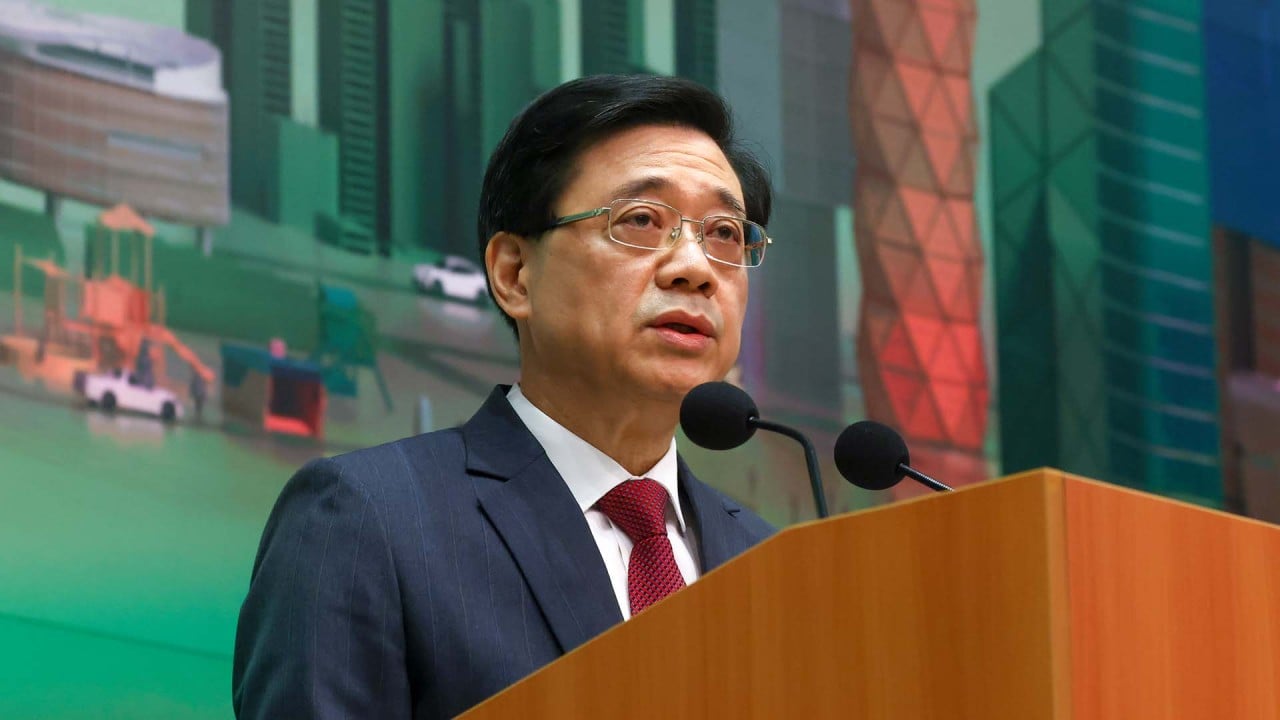
How Hong Kong chief executive hopeful John Lee can raise the bar if elected
- Chief executive candidate John Lee has promised ‘results-oriented’ leadership and vowed to build a more competitive and politically stable city
- To deliver, he would need to make government ministers more accountable, encourage integration with the Greater Bay Area, and take steps towards universal suffrage
When his name first began to circulate in connection with the role, many assumed that Beijing wanted the new chief executive to put national security front and centre. Lee’s statement makes it clear that Beijing expects much more.
Externally, there are worsening headwinds from all directions, not least an indiscriminate anti-China stranglehold in its great power rivalry with the United States.
However, against such high expectations, Hong Kong has now fallen short, despite throwing tons of money and human capital at the challenges.
Much of the problem lies in a fossilised, “colonial-style” administration more concerned with process than results.
The system of politically-appointed ministers introduced in the Tung Chee-hwa administration has not solved the problem. Ministers rely on highly paid heads of departments under their charge to deliver. Unlike ministers, these heads are not politically accountable, to say nothing of their subordinates. This situation has cemented a “silo mentality”, with each department wary of treading on another’s turf, and unable or unwilling to think outside the box.
Hong Kong must rebuild public trust to be ready for the next crisis
For example, I have for years been quietly cajoling the powers-that-be to introduce a “smart” zebra-crossing system so that pedestrians don’t have to waste precious minutes waiting when no vehicles are approaching. I was told that the ball was passed between the Innovation and Technology Bureau and the Housing and Transport Bureau. Nothing has happened up to now.
It’s no wonder that Lee has stressed a “results-oriented” approach.
To make it work, ministers and their heads of departments should be held fully accountable for declared outcomes. These should be quantifiable; for example, the average waiting time for public housing, number of affordable private homes developed over a given period, number of people lifted out of poverty, and number of artificial intelligence and big data start-ups.

Each head of department and minister should face the public at a press conference at least once a year to lay out their performance targets over say, a five-year period, with measurable annual milestones. They should welcome public feedback and be prepared to be held to account.
‘Iron man’ needs to show Hong Kong his ‘good cop’ side
A system of accountability will force ministers, heads of departments and their subordinates to deliver. Otherwise, promises of a “results-oriented” approach risk becoming empty talk. Hong Kong people are fed up with slogans.
To enhance Hong Kong’s long-term competitiveness, Lee would need to pick his team carefully, selecting ministers with outstanding ability in their respective fields.
He would need to revamp his Executive Council to reflect the areas crucial for Hong Kong’s upwards trajectory, including financial stability, global competitiveness, technological innovation, ecology, youth affairs, housing, social cohesion, political acumen, and international affairs and China-related geopolitics.
Most are now likely to accept that democracy and universal suffrage in Hong Kong cannot be a carbon copy of those systems in the West. Candidates have to be pre-screened by Beijing because under the Basic Law, the chief executive not only represents the people of Hong Kong, but works closely with and is accountable to Beijing.
The nearly impossible balancing act that has tripped up every Hong Kong leader
So it will be incumbent on the sixth-term chief executive to lay all the necessary groundwork for universal suffrage to happen in the subsequent term.
Hong Kong will have a solid foundation for its future within the motherland when its governance is results-oriented, its long-term competitiveness is enhanced and its government is elected by the people.


